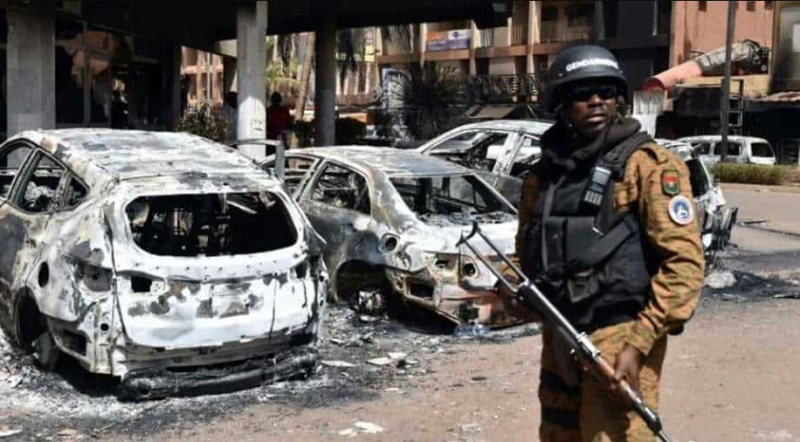
Burkino Faso: The governor of the Sahel region of Burkina Faso reported that a convoy carrying supplies struck an improvised explosive device, resulting in at least 35 civilian deaths and 37 injuries.
A seven-year insurgency that has displaced 1.9 million people and claimed more than 2,000 lives is gripping the landlocked African nation.
According to a statement by Sahel region governor Rodolphe Sorgo, the incident happened on Monday as the military-led convoy was supplying towns in the unrest-plagued north on a road between Bourzanga and Djibo.
"One of the vehicles carrying civilians collided with an IED. The 35 dead and 37 injured are all civilians, according to the provisional toll, it said.
The statement added that the convoy had left the north for Ouagadougou, the capital of Burkina Faso, and that "the escorts quickly secured the perimeter and took measures to help the victims."
The supply convoy was "composed of civilians, drivers, and traders," a security source told AFP.
"Several dozen vehicles, including trucks and public transportation buses," were hit, according to a Djibo resident.
The victims are mostly businesspeople who were travelling to Ouagadougou to purchase supplies, as well as students who were coming back to the city to prepare for the upcoming academic year, the resident, who wished to remain anonymous, told AFP.
Similar attacks by jihadist groups have recently been carried out on the main thoroughfares leading to the northern cities of Dori and Djibo.
15 soldiers lost their lives in the same region at the beginning of August when two IEDs exploded.
The majority of the fighting has been centred in the north and east, and it has been led by jihadists who may have connections to al-Qaida or the Islamic State organisation.
The government of Burkina Faso, which seized power in January, has prioritised the fight against the insurgency because more than 40% of the nation is not under its control.
On Sunday night, junta leader Lieutenant-Colonel Paul-Henri Sandaogo Damiba welcomed a "relative calm" in a speech to the country from the town of Dori.
The government claimed that it had increased the army's "offensive actions" and opened communication with some armed groups through local and religious leaders.
Damiba claims that this procedure has made it possible for "a few dozen young people" to give up their arms.
However, there have been a lot of attacks since the start of the year, like the Seytenga massacre in June, which claimed 86 civilian lives and was one of the bloodiest of the long-running insurgency.
In response to China's initiatives Japan resumes its courtship of Africa
In response to China's initiatives Japan resumes its courtship of Africa